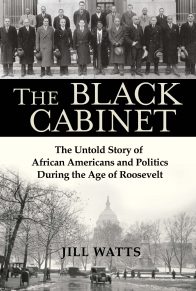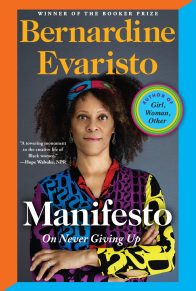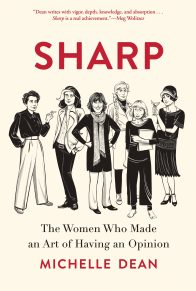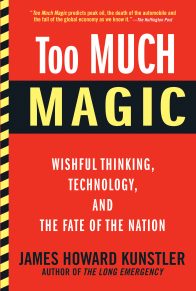Before there was a “Jane Roe,” the most important champions of reproductive rights were ordinary people working in their local communities. In A Woman’s Life Is a Human Life, historian Felicia Kornbluh delivers the untold story of everyday activists who defined those rights and achieved them, in the years immediately before and after Roe v. Wade made abortion legal under federal law.
A Woman’s Life Is a Human Life is the story of two movements in New York that transformed the politics of reproductive rights: the fight to decriminalize abortion and the fight against sterilization abuse, which happened disproportionately in communities of color and was central to an activism that was about the right to bear children, as well as not to. Each initiative won key victories that relied on people power and not on the federal courts. Their histories cast new light on Roe and constitutional rights, on the difficulty and importance of achieving a truly inclusive feminism, and on reproductive politics today.
This is a book full of drama. From dissident Democrats who were the first to try reforming abortion laws and members of a rising feminist movement who refashioned them, to the nation’s largest abortion referral service established by progressive Christian and Jewish clergy, to Puerto Rican activists who demanded community accountability in healthcare and introduced sterilization abuse to the movement’s agenda, and Black women who took the cause global, A Woman’s Life Is a Human Life documents the diverse ways activists changed the law and worked to create a world that would support all people’s reproductive choices.
The first in-depth study of a winning campaign against a state’s abortion law and the first to chronicle the sterilization abuse fight side-by-side with the one for abortion rights, A Woman’s Life Is a Human Life is rich with firsthand accounts and previously unseen sources—including those from Kornbluh’s mother, who wrote the first draft of New York’s law decriminalizing abortion, and their across-the-hall neighbor, Dr. Helen Rodríguez-Trías, a Puerto Rican doctor who cofounded the movement against sterilization abuse. In this dynamic, surprising, and highly readable history, Felicia Kornbluh corrects the record to show how grassroots action overcame the odds to create policy change—and how, after the loss of federal protection and broader assaults on reproductive and bodily autonomy, how activists might respond today
Praise for A Woman’s Life Is a Human Life:
“[A] comprehensive, compelling chronicle of activists who fought to change New York’s abortion laws both before and after Roe v. Wade . . . A Woman’s Life Is a Human Life offers insights into how we can form genuine alliances in order to continue making changes that align with the feminist values of compassion, fairness and care: by consolidating ranks, listening to one another in order to understand our differences while simultaneously identifying our commonalities. Changes come from people power, not self-portraits; systems of self-sovereignty achieved by many.”—Mira Ptacin, New York Times
“Eye-opening. . . Kornbluh makes public policy and legal history come alive by demonstrating the power of women’s collective action. The result is an inspiring study of how progress happens.”—Publishers Weekly
“Both timely and engaging, this insightful study reveals that the battle for abortion rights must be considered only one part of a much larger, more complex struggle that needs to address the protection of the sexual freedom and choices of all women. Necessary reading for anyone worried about this post-Dobbs world.”—Kirkus Reviews
“This long-needed essential history fills our gap of understanding of how the concept of reproductive rights, a recognition of the multiple issues that women need in order to have reproductive control over our lives, grew from grassroots movements in the creative and dynamic environment of New York City in the 1970’s and 80’s. This expansion of understanding on a big-tent political model, was ultimately defeated by the rise of the religious right and its coalition with economic conservatives, colliding with the personal limits of the individuals who created a radical alternative to single issue abortion rights politics. However, they won significant victories to combat sterilization abuse and expanded the collective analysis for the future. Felicia Kornbluh makes an important and enlightening contribution to the history of American radicalism and social movements.”—Sarah Schulman, author of Let the Record Show: A Political History of ACT UP, NY 1987-1993
“At a time when reproductive justice is once again elusive, Felicia Kornbluh shows us that the catalyst for change may lie in the unexplored stories of our past. Compelling and urgent, A Woman’s Life makes clear the power of women’s activism—then and now.”—Melissa Murray, Frederick I. and Grace Stokes Professor of Law, NYU
“Felicia Kornbluh’s deeply original and important history highlights how much more complex reproductive rights issues once were than most proponents now realize. Her fascinating and compelling account of how groups such as Planned Parenthood struggled with the challenges posed by newer activists makes A Woman’s Life essential reading in these harrowing days.”—David J. Garrow, Pulitzer Prize-winning author of “Liberty and Sexuality”
“A Woman’s Life Is a Human Life charts the organizing for legal abortion alongside the work to eliminate sterilization abuse. Kornbluh argues persuasively that activists won legal abortion and regulations to prevent coerced sterilization through intensive, years-long, multi-racial grassroots organizing. At the same time, she reveals the tactics that succeeded as well as the divisions and mistakes that arose from homophobia and white middle-class racial privilege. This detailed and lively history of the New York movement will be an important handbook for today’s reproductive rights activists.”—Leslie J. Reagan, author of When Abortion Was a Crime
“Moving from the local to the national and from grassroots politics to the legislature and the courts, this is the first real chronicle of the reproductive rights movement of the past sixty years. Extremely valuable, lively, and personal, Felicia Kornbluh’s book compares the role of women like her lawyer mother, who wrote the first draft of a decriminalization bill, with that of Helen Rodriguez-Trías and her fellow activists, who pioneered expanding reproductive rights to achieve what today we call reproductive justice.”—Linda Gordon, University Professor of History, NYU
“This illuminating portrayal of the long feminist struggle for reproductive justice couldn’t be more timely. In recounting decades of organized activism to secure abortion rights and end sterilization abuse, this book provides eye-opening object lessons for today’s activists. Essential history vibrantly told.”—Alix Kates Shulman, author of the classic novel Memoirs of an Ex-Prom Queen, and co-editor of Women’s Liberation! Feminist Writings that Inspired a Revolution & Still Can
“Felicia Kornbluh’s compelling book demonstrates how forced birth on the one hand, and sterilization on the other, are linked, and how individual activism turned personal experience into political change. A deeply interesting history.”—Linda Hirshman, author of Sisters in Law and The Reckoning















